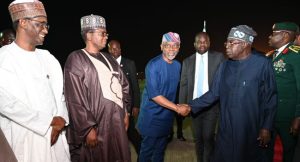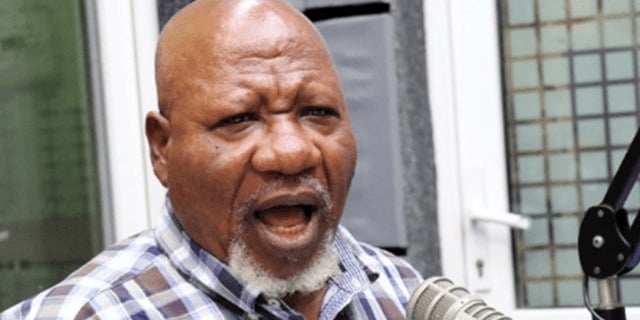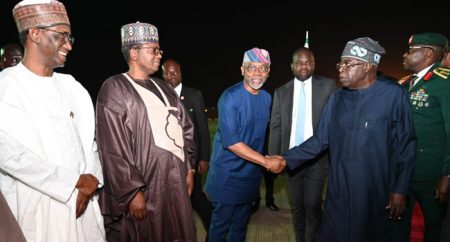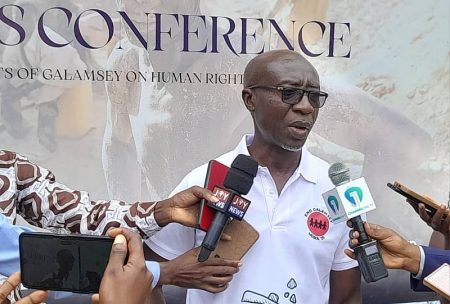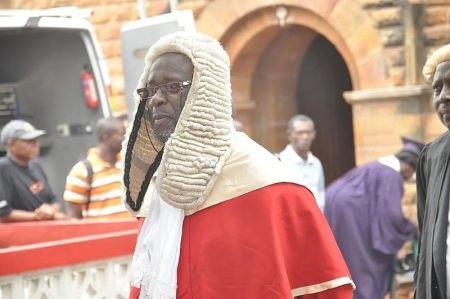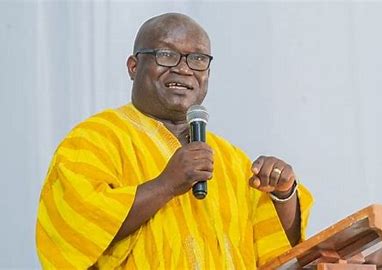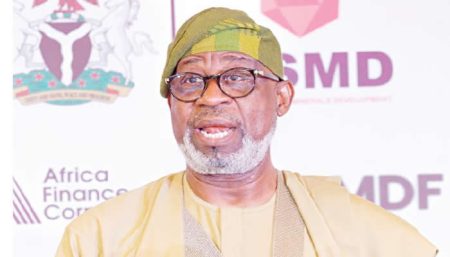Former National Democratic Congress (NDC) Central Regional Chairman Allotey Jacobs has described Speaker of Parliament Alban Bagbin’s recent decision to declare four parliamentary seats vacant as a “parliamentary coup d’état.” Speaking on Peace FM, Jacobs emphasized his deep concerns regarding the ongoing political impasse that has arisen from the Speaker’s decision made on October 15, 2024. This declaration has ignited tensions among political factions, particularly between the NDC and the New Patriotic Party (NPP). The gravity of this situation, according to Jacobs, poses a significant threat to Ghana’s democratic stability.
Jacobs pointed out that despite a ruling from the Supreme Court that called for a stay on the Speaker’s decision, the NDC Members of Parliament (MPs) have chosen to adhere solely to Bagbin’s directives. He characterized this ongoing defiance against the apex court’s ruling as indicative of a troubling trend in Ghanaian politics, asserting that it risks destabilizing the nation’s democratic framework. The actions surrounding the declaration of the four seats as vacant have been branded by Jacobs as acts that resemble a political coup, undermining the established legal processes that govern parliamentary decisions.
The implications of such a declaration, according to Jacobs, could lead to widespread chaos in Ghana. He stressed the necessity for adherence to the rule of law, invoking the idea that democracy is founded on respect for judicial authority. Jacobs criticized the notion that political power can be seized unilaterally without legitimate support from the electorate, advising opposition parties to engage in campaigning rather than attempting to manipulate parliamentary structure through declarations and refusals to acknowledge judicial rulings.
Furthermore, Jacobs articulated a call for responsibility among all political entities in Ghana to ensure the preservation of democratic values. He underscored that rather than escalating conflicts, it is imperative for party representatives to engage in constructive dialogue. This sentiment resonates with the foundational principles of democracy, which thrive on collaboration and respect for one another, regardless of political affiliations. Jacobs’ commentary stresses the importance of unity and the collective responsibility of all political players in the enhancement of Ghana’s political environment.
The repercussions of disregarding the Supreme Court’s ruling could be dire, as indicated by Jacobs. Such actions could set a precedent that might embolden further defiance against judicial authority, leading to a potential breakdown of order within the parliament and society at large. His remarks serve as a reminder that the health of a democracy is often reflected in the respect shown towards legal institutions established to mediate and regulate governance. The potential for civil unrest as a result of these political tensions cannot be dismissed lightly.
In conclusion, the situation surrounding the declaration of parliamentary seats by Speaker Alban Bagbin has ignited a serious debate on the boundaries of political authority and the rule of law in Ghana. Jacobs’ characterizations of the events as a parliamentary coup indicate a need for a reevaluation of how political education and respect for democratic institutions are practiced across party lines. His plea for responsible action from all political leaders highlights a critical intersection between governance, legal fidelity, and democratic ethos, urging national unity to weather this turbulent political climate. Ultimately, Jacobs calls upon the NDC and the NPP to channel their energies towards nurturing a democratic process that respects the rule of law for the benefit of all Ghanaians.


